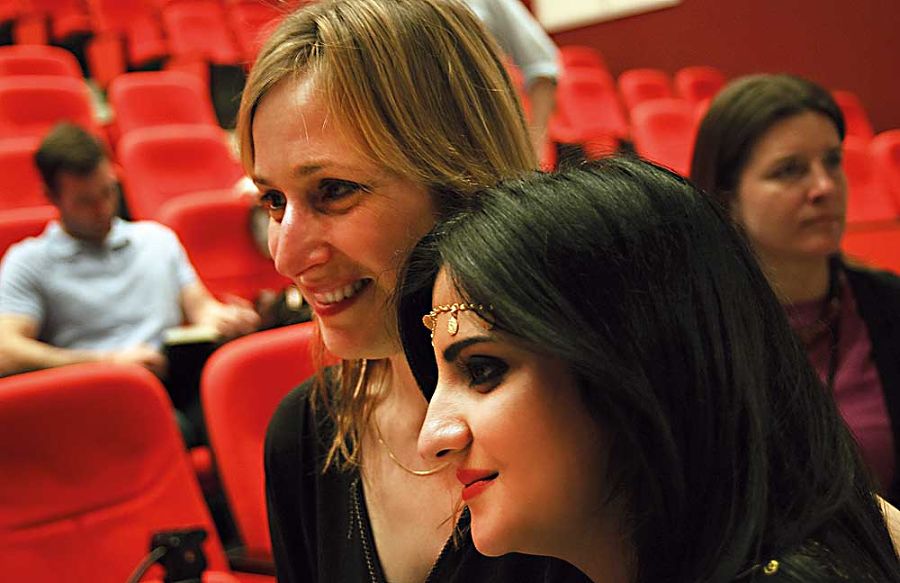SULAIMANI, IRAQ: With her 2005 solo show 9 Parts of Desire, playwright/performer Heather Raffo strove to humanize Iraqis for American audiences. In May, in this Kurdish city in northern Iraq, the Iraqi-American Raffo got to see her play do something new: show Iraqis to themselves, albeit via an American perspective. In a staging by L.A.–based actor/director Jillian Armenante at the American University of Iraq–Sulaimani, Raffo watched five Iraqi female students perform a trimmed version of her play.
“It was rockin’,” enthused Raffo in an interview after her return. Though it was her writing onstage, she felt that the Iraqi 9 Parts “was the 20-year-old’s version—it was 20-year-old Iraqi women talking to a couple of hundred 20-year-old Iraqi people in 20-year-old shorthand. So one character, Hooda—a late-’70s expat who lives in London, has met heads of state, is very sophisticated and is sipping whisky—was played in this version as a tight-jeans-wearing, pub-crawling young woman, a hotheaded public intellectual, holding a bottle of Scotch.”
Armenante and Raffo got the invite to join war correspondents, photographers and poets for a symposium on art and social justice at the university from Peter Friedrich, a former theatre colleague of Armenante’s who’s been working at the privately funded institution for six years. The 9 Parts production itself was a kind of model of Iraq’s tense postwar rapprochement. “Within our little cast, all warring factions—Kurds, Arabs who speak with Egyptian accents—were playing together,” said Armenante. “The acting was incredible, so economic and simple, and it connected.”
Indeed, said Raffo, it’s gratifying that her play has now come full circle, in effect humanizing Americans for Iraqis who have ample reason to be skeptical, even hostile, of the U.S. “To know that this was a popular play in the U.S. broke down stereotypes for them about who Americans are and what we care about,” concluded Raffo.


